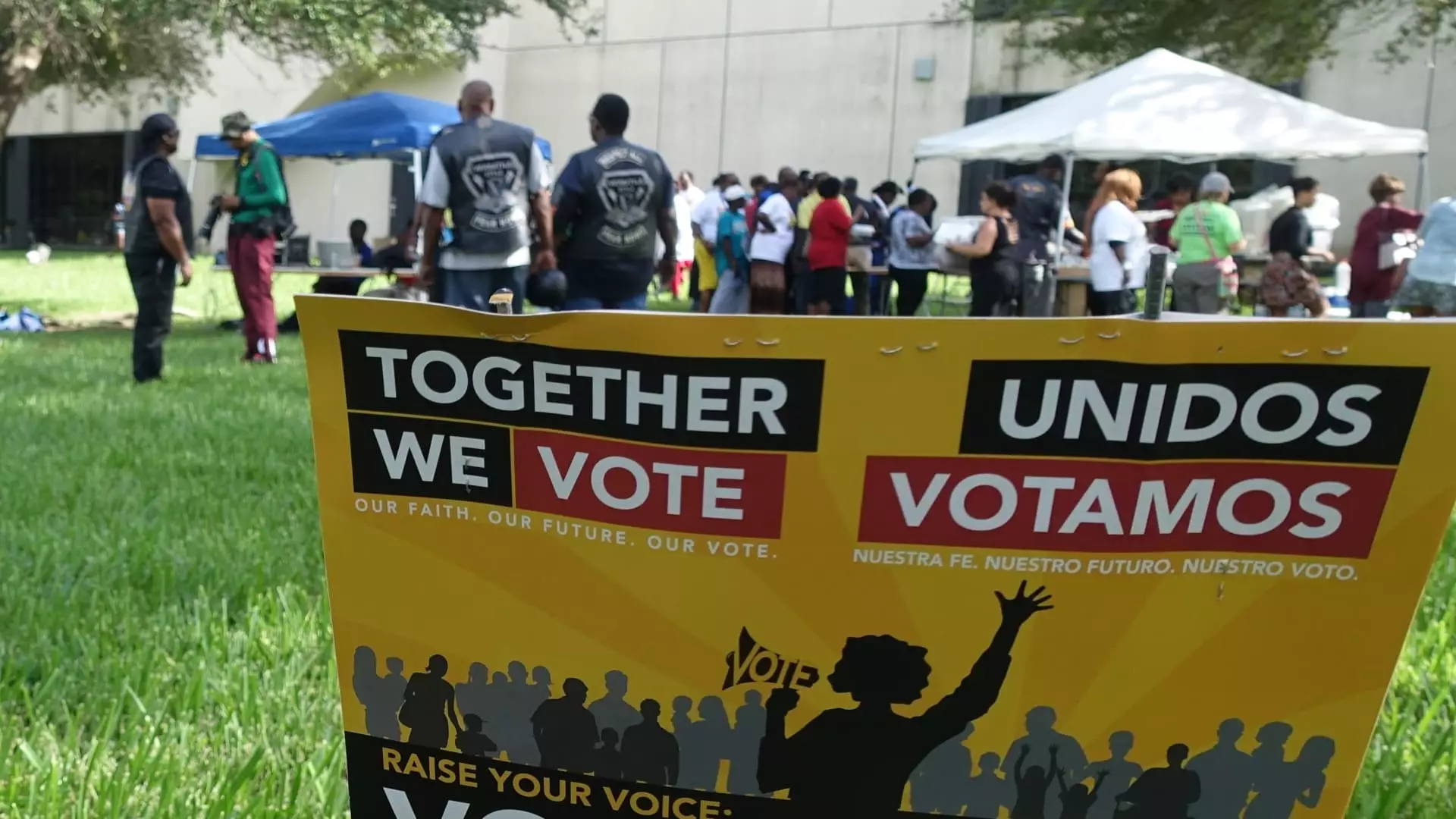As the 2024 election cycle heats up, the Harris campaign is sharpening its focus on a crucial demographic: Latino voters. With early voting just around the corner in key battleground states—Arizona, Nevada, and Pennsylvania—the campaign is launching a comprehensive outreach initiative aimed at energizing and mobilizing this influential group. In the backdrop of National Hispanic Heritage Month, these efforts are timely and necessary, tapping into the cultural richness and political potential of Latino communities across the country.
Strategic Partnerships and Events: Reaching Out with Purpose
To commence its ambitious outreach, the campaign has planned a multi-faceted approach that incorporates new ad spending on Spanish-language radio and strategic participation in culturally significant events such as boxing matches and baseball games. One standout event includes Vice President Kamala Harris’s keynote address at the Congressional Hispanic Caucus Institute’s annual conference—an opportunity to connect with leaders and constituents while raising awareness and addressing key issues facing the Latino community.
Moreover, engaging surrogates like Minnesota Gov. Tim Walz and representatives from diverse states amplifies this effort. Their involvement in local events, including a highly anticipated boxing match in Las Vegas featuring Mexican boxing stars, exemplifies how the campaign aims to integrate into Latino culture. Initiatives such as “Latinos con Harris-Walz,” focusing on specific community events like a Hispanic Heritage tailgate with the Detroit Tigers, showcase the campaign’s commitment to grassroots organizing.
Advertising Investments: Making Waves in Spanish-Language Media
One of the campaign’s most notable strategies is its $3 million investment in Spanish-language radio ads, described as one of the most substantial expenditures in Hispanic media to date. The ads are strategically designed to be culturally resonant, incorporating local dialects and themes that resonate with Latino audiences. By working with popular radio personalities and targeting sports-centric shows that feature local teams, the campaign plans to meet voters where they are—a crucial factor, as many Latino voters engage with media through tight-knit networks anchored in family and community.
The mobilization strategy also extends beyond conventional platforms. The introduction of a “Latinos con Harris-Walz” WhatsApp channel aims to counter misinformation while fostering communication in a space where many Latino voters consume their news. This approach recognizes the importance of trusted messengers within Latino communities, a valuable tactic that can sway undecided voters.
Polling Insights: Understanding the Latino Electorate
Recent polling data sheds light on the political leanings of Latino voters. According to a survey conducted by BSP Research, Harris holds a distinct edge in the Latino community, particularly among Spanish-speaking households. With nearly 60% indicating their intent to support her against Trump’s 32%, this demographic is proving to be pivotal. Though support for Harris remains significant across language barriers, there is a tangible divide: in English-dominant households, the support balance slightly tilts more toward Harris at 51%, compared to Trump’s 38%.
These insights provide a roadmap for the campaign as it seeks to amplify its connections with Latino voters. By tailoring messages and outreach efforts to cater to the particular needs and preferences of varying linguistic groups, the campaign can more effectively resonate with its target audience.
Engagement is not limited to voter contact events; Latino leaders within the administration are also integral to the campaign’s strategy. Health and Human Services Secretary Xavier Becerra and Education Secretary Miguel Cardona are slated to participate in events targeting Hispanic voters in Arizona and Pennsylvania, respectively. Their involvement underscores the administration’s acknowledgment of the significance of Latino voices in guiding policy and electoral outcomes.
Additionally, the itinerary for the campaign incorporates cultural touchstones such as Mexican Independence Day, where gatherings at local churches will foster community participation and voter awareness. Such events reinforce the narrative that the Biden-Harris administration values and champions Latino contributions, emphasizing their role in shaping national discourse.
As the Harris campaign gears up for a rigorous campaign season, its efforts to articulate a clear, resonant message to Latino voters is critical. By leveraging cultural events, targeted advertising, and community connections, the campaign aims to counteract Trump’s anti-Latino messaging while fostering a vibrant political engagement within Latino communities.
Ultimately, the stakes are high, as Latino voters hold significant power in shaping the future electoral landscape. The Harris campaign’s strategic initiatives represent not just an electoral strategy but a commitment to inclusive representation and democracy. As events unfold, the effectiveness of these efforts will undoubtedly shape both the immediate electoral outcomes and the long-term relationship between the Biden-Harris administration and Latino communities across the nation.


Leave a Reply